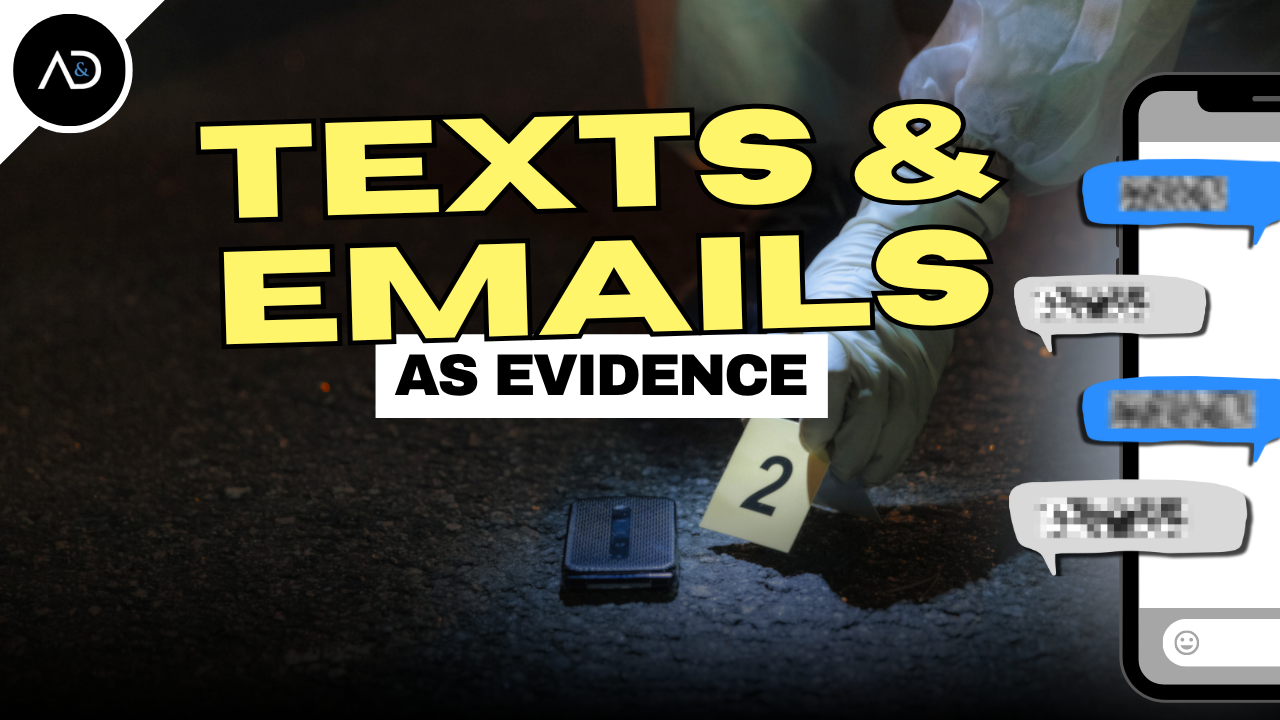
In today’s digital world, text messages and emails can become some of the most powerful forms of evidence in trust litigation—especially when you’re trying to prove undue influence, fraud, or a person’s true intent in signing a trust or trust amendment.
People communicate differently over text. They’re casual, spontaneous, and often reveal thoughts and emotions they’d never put in a formal letter or even an email. For that reason, texts and instant messages frequently provide more candid, revealing evidence than almost any other form of written communication.
Why Texts and Emails Matter in Undue Influence Cases
In most trust contests, undue influence is rarely proven with direct evidence. The person who was influenced is typically deceased, and the alleged influencer won’t admit to manipulating them. That means lawyers must rely on indirect or circumstantial evidence—proof drawn from the actions, communications, and relationships of those involved.
That’s where text messages and emails come in. They can reveal a pattern of manipulation, contradictions, or hidden motives that might otherwise remain buried.

Examples of How Written Messages Reveal the Truth
Imagine a scenario where a wrongdoer tries to take control of an elder’s finances by claiming the elder is incapacitated. They email or text the elder’s doctor asserting that the elder can no longer manage their own affairs.
Later, in litigation, that same person claims the opposite—that the elder was perfectly capable and directed all their own decisions. These contradictory communications can become key evidence of manipulation and deceit.
In other cases, the wrongdoer’s own texts might expose their mindset. Maybe they complain about the victim, describe them in negative or dismissive terms, or discuss the estate with friends in ways that undermine their credibility. Even casual language can reveal intent, bias, or knowledge of wrongdoing.
Because emails and text messages can span many years, it’s virtually impossible for anyone to curate every message with an eye toward a future lawsuit. The informal nature of texting makes people less guarded—and that’s exactly what makes these records so valuable in court.
The Double-Edged Sword of Digital Evidence
Of course, digital evidence cuts both ways. You may have your own text messages that, in hindsight, don’t look ideal. A frustrated or emotional message can be taken out of context later in litigation.

The best practice? Keep your messages short, factual, and professional when dealing with sensitive family or trust issues. And when possible, pick up the phone instead of texting. Verbal conversations can’t be subpoenaed, but written ones can—and often are.
Key Takeaways
- Texts and emails are critical in proving undue influence because they provide real-time, candid insight into relationships and behavior.
- Contradictions between what someone says in a text and what they claim in court can be devastating to their credibility.
- Maintain professionalism in your own communications—you never know when they might become evidence.
- When in doubt, speak instead of text—it’s far safer than leaving a digital trail.
Final Thought
In modern trust litigation, texts and emails are the new witnesses. They tell stories the parties themselves may never admit—and can ultimately make the difference between winning and losing a trust contest.
If you’re unsure whether you need legal help, consider scheduling a free consultation with an experienced probate lawyer. A good lawyer can quickly assess your situation and guide you on the best course of action.

